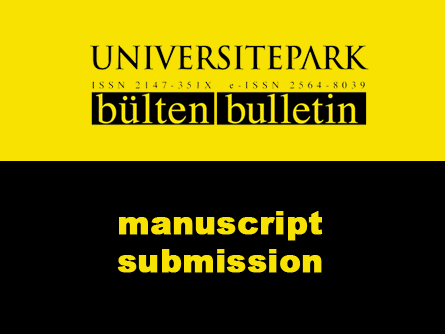Integration of Game-Based Learning as a Teaching Method in Elementary Education
pp. 50-61 | Published Online: September 2020 | DOI: 10.22521/unibulletin.2020.91.5
Eliza Avdiu
![]() Full text PDF |
1411 |
1264
Full text PDF |
1411 |
1264
Abstract
The education system in Kosovo is facing contemporary reform changes; moving from the inherited traditional system to a children activity-oriented form of teaching, where the objective is game-based learning. The purpose of this study is to form an understanding of the integration of game-based learning as a teaching method, and its challenges in application within the Kosovan elementary school teaching process. In the study, semi-structured interviews were conducted with 24 teachers from eight elementary schools. The study data were based on the descriptive analysis of the teachers’ opinions, as well as observation of their teaching by the researchers. According to the findings of the study, the importance of integrating game-based learning in elementary education lies in changing the position of the pupil in the school, facilitating a sense of joy from using games during classroom lessons, and thereby enabling their free expression, to learn and to be appreciated without fear; which is something they may have been reluctant to do in Kosovan society. The results of the study present a challenging picture for Kosovan teachers in coping with integrating and delivering game-based learning as part of the curriculum reform; accordingly, the results seen in practice are not deemed to be satisfactory. Many problems exist with the use of games in the classroom such as lack of adequate teacher training, lack of textbooks and teaching aids, inadequate school facilities, and large numbers of pupils in the classroom.
Keywords: Integration, method, game-based learning, pupils, elementary education
ReferencesBoye, S. (2011). Teaching Toolkit. An Introduction to Game based learning. UCD Teaching and Learning. University College Dublin. Retrieved from http://www.ucd.ie/teaching/t4media/UCDTLT0044.pdf.
Dadheech, A. (2019). The Importance of Game Based Learning in Modern Education. The Knowledge Review. Retrieved from https://theknowledgereview.com/importance-game-based-learning-modern-education/.
Diamond, A. (2003). Game Based Learning: Definition and Examples. Education Psychology course. Retrieved from https://study.com/academy/lesson/game-based-learning-definition-and-examples.html.
Harris, C. (2009). Meet the New School Board: Board games are back – and they’re exactly what your curriculum needs. School Library Journal, 55(5), 24-26.
Johnson, R. B., & Christensen, L. (2017). Educational Research. Quantitative, Qualitative and Mixed Approaches. Thousand Oaks, CA: SAGE.
KEC. (2001). Seminari për të shkruarit, Nga të vet shprehurit tek argumentet e shkruara. Përgatitur për projektin “Të nxënit ndërveprues”. Edicioni 7. Prishtinë: Qendra për Arsim e Kosovës.
MacKenty, B. (2006). All Play and No Work. School Library Journal, 52, 46-48.
Matthew, V. (2019). Activities for Teaching Innovation: Game-Based Learning in the Classroom. VentureWell. Retrieved from https://venturewell.org/game-based-learning/ on December 13, 2018 (since updated).
Miles, M. B., & Huberman, A. M. (1994). Qualitative Data Analysis: An Expanded Sourcebook. Thousand Oaks, CA: Sage.
Ministria E Arsimit, Shkencës Dhe Teknologjisë. (2011). Katalogut te Programeve te Akredituara per Zhvillim Profesional te Mesimdhenesve dhe Udheheqesve te Arsimit. Perkrahja per implementimin e qasjes tete sektoriale ne sektorin e arsimit ne Kosove. Pristina, Kosovo: MASHT.
Ministria E Arsimit, Shkencës Dhe Teknologjisë. (2016). Kurrikula bërthamë për klasën përgatitore dhe arsimin fillor të kosovës, (klasat 0, I, II, III, IV dhe V). Pristina, Kosovo: MASHT. Retrieved from https://masht.rks-gov.net/uploads/2017/03/kurrikula-berthame-1-finale-2.pdf.
Plas, L. J., Homer, D. B., & Kinzer, K. C. (2015). Foundations of Game-Based Learning. Educational Psychologist, 50(4), 258-283.
Republic of Kosovo Basic Education Program. (2013). Zhvillimi I shkathtësive të shekullit 21 në klasat me nxënësin në qendër. Retrieved from http://kec-ks.org/wp-content/uploads/2016/06/21-st-Century-Classroom_shq1.pdf
Riessman, K. C. (2008). Narrative Methods for the Human Sciences. Thousand Oaks, CA: Sage.
Sclaunich, M. (2011). Games As A Tool For The Promotion Of Learning. A Survey In Primary School. Metodički obzori: časopis za odgojno-obrazovnu teoriju i praksu, 12(6), 129-141.
Shaffer, D. W., Squire, K. R., Halverson, R., & Gee, J. P. (2005). Video games and the future of learning. Phi Delta Kappan, 87(2), 104-111.
Smidt, S. (2006). The Developing Child in the 21st Century. A global perspective on child development. Abingdon, United Kingdom: Routledge.
Ucus, S. (2015). Elementary School Teachers’ Views on Game-based Learning as a Teaching Method. Procedia - Social and Behavioral Sciences, 186, 401-409.
Yıldırım, A., & Şimşek, H. (2006). Nitel araştırma yöntemleri. Ankara, Turkey: Seçkin.
UNIBULLETIN News!
► New issue coming soon! (Volume 13 Issue 1, 2024)
► Call for Papers
UNIBULLETIN is calling for submissions. Authors are invited to submit papers from the all fields of the Education (General) and Social Sciences (General) in the international context. All submissions should be presented only in English.
